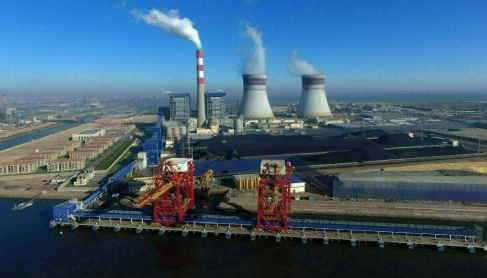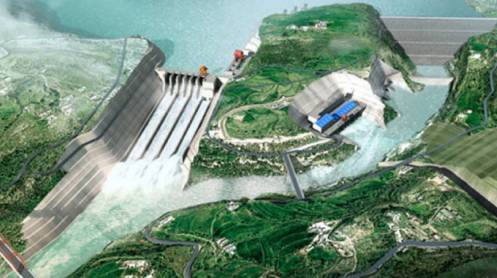ECC agrees Pakistan will not slap arbitrary penalties on power plants
ISLAMABAD: Pakistan on Thursday approved amendments to the energy deals signed with Chinese power plants to end arbitrary penalties but deferred decision on bringing a quad-nation gas pipeline project under the special foreign investment protection regime.
The Economic Coordination Committee (ECC) of the cabinet authorised the energy ministry to sign supplementary power purchase agreements with the Chinese power plants set up under the China-Pakistan Economic Corridor (CPEC). According to these agreements, Pakistan will not slap liquidating damages on the Chinese plants for non-supply of electricity due to fuel unavailability.
In return, Chinese investors will not demand the return on equity and cost of working capital component of the idle capacity payments for the period they could not supply electricity. A finance ministry statement said that a summary of the Power Division for approval of the principles for settlement of capacity deduction issues of imported coal-based projects and subsequent execution of a side agreement with Port Qasim Electric Power Company (PQEPCL) was discussed by the ECC.
After detailed discussion, it approved settlement of the issue with PQEPCL, as proposed by the Power Division. Owing to Pakistan’s failure to provide foreign exchange for fuel purchase, these power plants were unable to produce electricity. Instead of accepting its own mistake, the government imposed penalties on the Chinese power plants for non-provision of electricity.
It slapped a fine of over Rs21 billion on PQEPCL for non-provision of electricity for 82 days despite the fact that the plant could not run due to the government’s fault.
The ECC authorised the energy ministry to sign deals with the Chinese power plants on principles that if foreign exchange was not available for procurement of imported coal, the government would neither deduct the capacity purchase price nor impose liquidating damages for the period during which the projects remained unavailable due to fuel shortages.
For such period, the Chinese power plants will waive their right to claim the return on equity and cost of working capital component of the idle capacity payments.
Also, under the new deal, these power plants will be allowed to run for the same additional days they remain non-operational due to the lack of fuel supplies. Through a side agreement, the duration of the power purchase agreements signed with the CPEC power projects has been extended to the extent these plants remain non-operational.
Sponsors of the Chinese power plants had demanded that the government declare a political default to waive the penalties imposed due to the lack of fuel. However, the government did not agree to the demand due to its implications for the country’s credit rating.
Read 1MW solar power plant commissioned in G-B
The Chinese did not accept Pakistan’s proposal to treat fuel unavailability as other force majeure and insisted that the government should treat it as Pakistan’s political force majeure, according to sources in the Ministry of Energy. Finally, both parties agreed on broader principles and a side agreement has already been initiated between the Central Power Purchasing Agency-Guarantee (CPPA-G) and the Port Qasim Power Company.
TAPI pipeline
The finance ministry said that a summary for approval of the TAPI project as the Qualified Investment Incentive Package under the Foreign Investment Promotion and Protection Act (FIPPA) was discussed at length.
The ECC observed that it was a much-needed project and should be launched without delay.
“The ECC also observed that the proposal for inclusion of the project under FIPPA required further deliberation and examination of legal aspects, incentives and concessions,” it said. The energy ministry had proposed to include the Turkmenistan-Afghanistan-Pakistan-India (TAPI) gas pipeline project under the special FIPPA.
Sources said that the ECC did not agree to the proposal due to the restrictions imposed by the International Monetary Fund (IMF) on giving new tax exemptions and the far-reaching implications for the country’s overall investment regime. So far, only the Reko Diq copper and gold mine project is covered under the special legal regime.
Pakistan has already assured the protection of Turkmenistan investment with a sovereign guarantee under the Host Government Agreement, which was signed in 2016 along with the Gas Pipeline Framework Agreement.
Turkmenistan and Pakistan on June 9, 2023 signed the Joint Implementation Plan to accelerate work on the TAPI pipeline project. A gas sale-purchase agreement was signed during the tenure of Pakistan Peoples Party (PPP) led government over a decade ago.
The ECC also considered a summary of the Ministry of Overseas Pakistanis and Human Resource Development for approval of the budget for the Employees Old-age Benefits Institution (EOBI).
It was informed that EOBI’s collection had remained stagnant over the past years but recently registered a substantial increase of around Rs100 billion. The ECC appreciated the EOBI for its good performance and directed to strictly follow the budget calendar and prepare a long-term plan to clear Rs2 trillion worth of pension dues, according to the finance ministry. The forum approved the proposed budget for the organisation.





